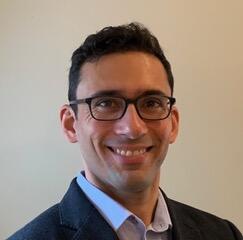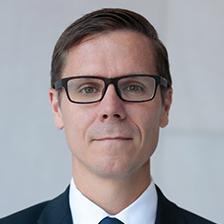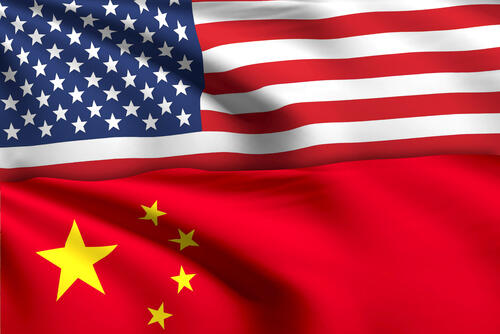This is a virtual event. Please click here to register and generate a link to the talk.
The link will be unique to you; please save it and do not share with others.
The Stanford China Program convenes an expert panel focused on the Decision of the fifth plenary session of the 19th Central Committee of the Chinese Communist Party, which took place on October 26-29. The Fifth Plenum Decision outlines not only China’s 14th Five Year Plan (2021-2025), but also Beijing’s economic blueprint through 2035 and the “goal of fully building a modern socialist country." The CCP leadership recently articulated its “dual circulation” policy – viz., a drastic reduction in China’s dependence on U.S. technologies and increased reliance on domestic consumption while maintaining exports and attracting foreign direct investments. At this critical juncture when the coronavirus pandemic has shrunk global trade and tensions between the U.S. and China continue to intensify, our panel members will be asked to examine what the Fifth Plenum Decision might signify. Does it mark a significant shift in Beijing’s strategic economic orientation? What are the short- and long-term implications of the Decision for China’s economic development strategy, U.S.-China relations, as well as the world’s economic and technology ecosystems?
Speakers
 James Green has worked for over two decades on U.S.-Asia relations. For five years, Green was the Minister Counselor for Trade Affairs at the U.S. Embassy in Beijing (2013-2018). As the senior official in China from the Office of the United States Trade Representative (USTR), Green was deeply involved in all aspects of trade negotiations, trade enforcement, and in reducing market access barriers for American entities. In prior government service, Green worked on the Secretary of State’s Policy Planning Staff and at the State Department’s China Desk on bilateral affairs. He also served as the China Director of the White House’s National Security Council. In the private sector, Green was a senior vice president at the global strategy firm founded by former Secretary of State Madeleine Albright and was the founding government relations manager at the American Chamber of Commerce in Shanghai, Asia’s largest AmCham. Currently, Green is a Senior Research Fellow at Georgetown University's Initiative for U.S.-China Dialogue on Global Issues and hosts a U.S.-China Dialogue Podcast.
James Green has worked for over two decades on U.S.-Asia relations. For five years, Green was the Minister Counselor for Trade Affairs at the U.S. Embassy in Beijing (2013-2018). As the senior official in China from the Office of the United States Trade Representative (USTR), Green was deeply involved in all aspects of trade negotiations, trade enforcement, and in reducing market access barriers for American entities. In prior government service, Green worked on the Secretary of State’s Policy Planning Staff and at the State Department’s China Desk on bilateral affairs. He also served as the China Director of the White House’s National Security Council. In the private sector, Green was a senior vice president at the global strategy firm founded by former Secretary of State Madeleine Albright and was the founding government relations manager at the American Chamber of Commerce in Shanghai, Asia’s largest AmCham. Currently, Green is a Senior Research Fellow at Georgetown University's Initiative for U.S.-China Dialogue on Global Issues and hosts a U.S.-China Dialogue Podcast.
Xiaomeng Lu is a senior analyst in Eurasia Group's geo-technology practice. She focuses on the interactions of emerging technologies with geopolitics, market dynamics, and regulatory norms. Lu provides in-depth analysis on key policy issues such as cybersecurity, data protection, artificial intelligence, internet governance, 5G, and trade.
Before joining Eurasia Group, Lu was the China practice lead at the consulting firm Access Partnership. In this capacity, she helped top financial and cloud service providers of the US enter China's market amid the trade war between the two countries. She also played a key role in establishing and expanding the company's first office in Asia, which generated over $1 million in revenue in three years. Previously, Lu worked as a global policy director at the Information Technology Industry Council, where she conducted successful advocacy campaigns that led to the suspension of onerous regulatory regimes, helping global electronics manufacturers save billions in potential losses. Lu has a master's degree in international trade policy from the Middlebury Institute of International Studies at Monterey and a bachelor's degree in economics from Renmin University of China.
Damien Ma is Director and co-founder of MacroPolo, the Think Tank of the Paulson Institute. He is also adjunct faculty at the Kellogg School of Management at Northwestern University. Previously, Ma was a Senior Analyst at Eurasia Group, the political risk research and advisory firm. At Eurasia Group, he mainly focused on the China and East Asian markets, covering areas that spanned energy and commodities and industrial policy to elite politics and US-China relations. Prior to joining Eurasia Group, he was a manager of publications at the US-China Business Council in Washington, DC, where he was also an adjunct instructor at Johns Hopkins SAIS.
In addition, Ma has published widely, including in The Atlantic, New York Times, Foreign Affairs, The New Republic, Foreign Policy, and Bloomberg, among others. He has also appeared in a range of broadcast media such as the Charlie Rose Show, BBC, NPR, and CNBC. He is the author or editor of the books, In Line Behind a Billion People: How Scarcity Will Define China’s Ascent in the Next Decade, The Economics of Air Pollution in China (by Ma Jun), and China’s Economic Arrival: Decoding a Disruptive Rise, published by Palgrave Macmillan. Ma was named a “99 under 33” foreign policy leader by the Young Professionals in Foreign Policy.
This event is part of the 2020 Fall Colloquia series, Shifting Geopolitics and U.S.-Asia Relations, sponsored by Shorenstein APARC.








 Oriana Skylar Mastro is a Center Fellow at Stanford University’s Freeman Spogli Institute for International Studies (FSI). Within FSI, she works primarily in the Shorenstein Asia-Pacific Research Center (APARC) and the Center for International Security and Cooperation (CISAC) as well. She is also a fellow in Foreign and Defense Policy Studies at the
Oriana Skylar Mastro is a Center Fellow at Stanford University’s Freeman Spogli Institute for International Studies (FSI). Within FSI, she works primarily in the Shorenstein Asia-Pacific Research Center (APARC) and the Center for International Security and Cooperation (CISAC) as well. She is also a fellow in Foreign and Defense Policy Studies at the 


 James Green has worked for over two decades on U.S.-Asia relations. For five years, Green was the Minister Counselor for Trade Affairs at the U.S. Embassy in Beijing (2013-2018). As the senior official in China from the Office of the United States Trade Representative (USTR), Green was deeply involved in all aspects of trade negotiations, trade enforcement, and in reducing market access barriers for American entities. In prior government service, Green worked on the Secretary of State’s Policy Planning Staff and at the State Department’s China Desk on bilateral affairs. He also served as the China Director of the White House’s National Security Council. In the private sector, Green was a senior vice president at the global strategy firm founded by former Secretary of State Madeleine Albright and was the founding government relations manager at the American Chamber of Commerce in Shanghai, Asia’s largest AmCham. Currently, Green is a Senior Research Fellow at
James Green has worked for over two decades on U.S.-Asia relations. For five years, Green was the Minister Counselor for Trade Affairs at the U.S. Embassy in Beijing (2013-2018). As the senior official in China from the Office of the United States Trade Representative (USTR), Green was deeply involved in all aspects of trade negotiations, trade enforcement, and in reducing market access barriers for American entities. In prior government service, Green worked on the Secretary of State’s Policy Planning Staff and at the State Department’s China Desk on bilateral affairs. He also served as the China Director of the White House’s National Security Council. In the private sector, Green was a senior vice president at the global strategy firm founded by former Secretary of State Madeleine Albright and was the founding government relations manager at the American Chamber of Commerce in Shanghai, Asia’s largest AmCham. Currently, Green is a Senior Research Fellow at 

